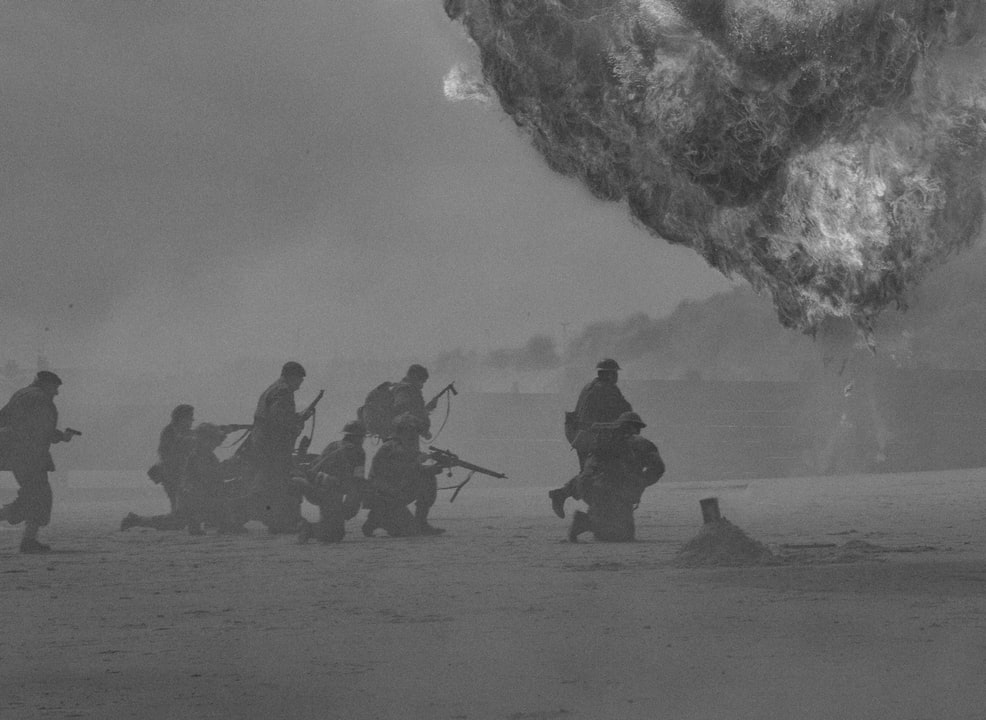Any review of the historical record quickly reinforces the notion that religion of any flavor has far less often been the source of ideological unification, and far more frequently the source of the vehement onslaught. But we need not dust off and breach the volumes of a human historical chronicle to gain insight and perspective of how religious belief incites violence. The resurgence of religious furor in the past thirty years provides ample illustration and contemporary experience for evaluation of the typical scenario.
Religious contention does not always foment violent expression
First, we should consider, that religious contention does not always foment violent expression. In fact, just the opposite is true. Most individuals hold religious beliefs to be a personal conviction and are quite happy to allow others to maintain their own. It is only when religion is allowed, or indeed provoked, by its’ radical elements to insight political activism that the danger of zealous radicalism leading to violent actions is most often the result.
 Two such cases of cohesion between religious belief and political activism occurred roughly thirty years ago, and have matured into the instigation of all-out warfare among Christian and Muslim factions.
Two such cases of cohesion between religious belief and political activism occurred roughly thirty years ago, and have matured into the instigation of all-out warfare among Christian and Muslim factions.
In the 1970s, televangelist Jerry Falwell used his television ministry to amass a large following and raise huge amounts of money to fund his operation. The Falwell doctrine was one of the ultraconservative convictions which stipulated a strictly literal translation of the biblical verse, and adherence to a system of family values dictated from a strictly patriarchal authoritative standpoint. In short, Falwell construed the father figure in the family unit to be a franchise of Godly ordination. He started his own church, the “Thomas Roads Baptist Church” in Lynchburg Virginia in 1956. From his pulpit, he would establish his evangelistic ministry, initially through radio broadcast, and later his “Old Time Gospel Hour” production would become a mainstay of TV televangelism. His message now reaching millions, Falwell used the revenues that poured in for the construction of a school, originally called the Lynchburg Christian Academy which would later be renamed Lynchburg Baptist College in 1971, and ultimately became Liberty University. The goal of his educational enterprise was obviously to build an ideological army to spread his particular religious perspective.
Seeking military advantage in the cold war
Meanwhile, on the other side of the globe, the United States seeking a military advantage in the cold war, participated in a coup de tau to install Mohammed Reza Pahlavi as dictator of Iran; and in so doing, develop a friendly pro-American relationship on the southern borders of the USSR. Iran for its complicity would receive generous allotments of American foreign aid and military technology. In addition, Iranian military personal were brought to the United States for training alongside American troops. In 1963, the Shaw instigated a series of reforms to westernize Iran, which met with immediate condemnation from the Shia Islamic leadership and in particular one Ayatollah Khomeini. Khomeini was arrested and held in prison for 6 months and then release. Upon Khomeini’s release, Iranian prime minister Hasan Ali Mansur suggested to Khomeini that he should apologize for his anarchical behavior and be supportive of the Government. Khomeini refused, and the prime minister contemptuously slapped him across the face. Mansur was assassinated two weeks later by a radical Islamic faction. Four members of the Islamic group were arrested tried and executed. The Shaw’s advisors proposed the execution of Khomeini as well, perhaps through the arrangement of a staged accident, but the Shaw would not go along with it and instead sent the ayatollah into exile. The zeal of Islamic radicalism, thus fomented, would build a constituency in the very universities that the Shaw had built during his “White Revolution.” There, antagonism towards the Shaw and the American government that backed him would be manifest.
The bridge between religious fervor and political activism is usually crossed when some religious leader usurps the omnipotent powers of God, or indeed himself claims to be an incarnation of God and begins to prescribe for his following an agenda of political activism to accomplish religious goals. Two of the most audacious examples of such, in recent history, are Jim Jones, and David Koresh, both of whom claimed to be the incarnation and second coming of Jesus Christ. Jerry Falwell, would himself cross this bridge in 1979, with the formation of his organization called “The Moral Majority,” a religiously based political activist lobby. That very same year, followers of Ayatollah Khomeini would take advantage of Shaw’s absence to orchestrate an overthrow of the Iranian government and take hostage the American embassy and its occupants. The formal political advocacy of two religious ideologies having been established, it was only a matter of time before the religious conflict would ignite all-out violent confrontation.
There are probably a lot of inflammatory incidents that we could consider as setting ablaze the hatred between radical Muslim elements and American evangelical Christians. Perhaps the support by Jerry Falwell and Christian conservatives for Israel, or maybe the gorilla insurgencies funded and supported by Muslim fundamentalists, have embroiled the conflict. But there can be no mistaking that statements by President George Bush, asserting a “crusade against an axis of evil,” and naming specifically Iranian Islamic fundamentalists, lit the fuse to a violent confrontation in the most recent scenario. The Islamic fundamentalist retaliated by declaring jihad against the Americans, giving license to every radical faction of the Islamic faith to conduct the violent war on the United States. Of course, most Americans unaware of the meaning of the word “crusade” in its original Latin vernacular, which has the exact same meaning as jihad,- God’s war or holy war- fail to grasp the significance of its issuance by Bush in this case.
 The Islamic’s, of course, had been conducting terrorist acts against the western world for some time, and the Americans had been no less complicit in mounting aggressive military campaigns in the middle east during the same period. On September 11, 2001, an Islamic fundamentalist group called al-Qaida would raise the stakes of all-out holy war, attacking the epitome of American capitalism. The Americans, with every right, launched an all-out assault on al-Qaida, but unsuccessful in its attempt to eradicate the group responsible for 9/11, instead launched an attack on Iraq, which had no apparent involvement with al-Qaida or the acts it perpetrated. The reasoning behind this military strategy, mystifying to most Americans still, was just as likely equally mysterious to the al-Qaida leadership.
The Islamic’s, of course, had been conducting terrorist acts against the western world for some time, and the Americans had been no less complicit in mounting aggressive military campaigns in the middle east during the same period. On September 11, 2001, an Islamic fundamentalist group called al-Qaida would raise the stakes of all-out holy war, attacking the epitome of American capitalism. The Americans, with every right, launched an all-out assault on al-Qaida, but unsuccessful in its attempt to eradicate the group responsible for 9/11, instead launched an attack on Iraq, which had no apparent involvement with al-Qaida or the acts it perpetrated. The reasoning behind this military strategy, mystifying to most Americans still, was just as likely equally mysterious to the al-Qaida leadership.
Presidential candidate John McCain has proposed attacking Iran, but such a strategy is likely only to further destabilize the already volatile and tenuous political and religiously sensitive environment of the middle east. Of course, McCain being a Southern Baptist may believe as many fundamentalist evangelicals do, that instigating the battle of Armageddon will hasten the second coming of Christ. His choice of a well indoctrinated evangelical as his running mate can only be seen as an outreach to Christian conservatives, whom McCain has not had a warm relationship with in the past and who opposed him in the primaries.
Barack Obama also has roots nurtured in the soil of Christian belief, but rather than attacking Iran, his own plan calls for hunting down and dissevering the heads of the al Qaida leadership, in their toeholds on the Afghan/Pakistan border. A noble cause perhaps, but not one which will necessarily defuse tensions in the middle east or between Christian, Islamic, and Jewish factions.
For two millenniums a likely long before, the world has witnessed one battle after another based on offsetting claims to religious righteousness, each side claiming the mandate of God to eradicate the belief of the other. The violence that has resulted has taken the lives of countless humans and provided no resolution to the fundamental underpinnings of religious descent.
New episodes of Violence
Today proliferation of beliefs is manifest through numerous factions of divergent Muslim and denominational Christian beliefs. Which of these will harbor designs of political activism that will serve only to foment new episodes of violence? The American philosopher George Santayana warned, “those who fail to remember the past are doomed to repeat it.” Perhaps we can find some other way to settle our religious differences and foster mutual respect for religious ideology, thereby precluding the reoccurring theme of violent confrontation as an end to an ideological means that permeates the chronicles of human history.
According to former secretary of defense Robert McNamara, the world came close to total nuclear annihilation during the Cuban Missile Crisis, which took place between the Soviet Union and Americans in 1962. General Curtis Lemay, proposed an immediate all-out nuclear attack on the Soviets, citing an 8 to 1 American nuclear offset and the opportunity for a first-strike advantage. Unbeknown to Lemay, was the fact that 90 nuclear warheads had already been delivered to Cuba and were readied for launch. Had Lemay’s plan been carried out, and it was given serious consideration, Soviet hydrogen bombs would have been exploding over American cities, long before the first American ICBM’s or B-52’s penetrated Soviet airspace. President Kennedy personally decided to attempt to resolve the crises first through de taunt, reserving his military options as a secondary consideration. As a result, I am here to write this article and you to read it. Perhaps, if we focus more on resolving our differences, be they religious or political, or an amalgam of both, through negotiated settlement rather than armed conflict, we can preclude the ultimate escalation to nuclear annihilation which looms large on the horizon of human existence. Certainly, there is nothing to be gained by provoking it.






